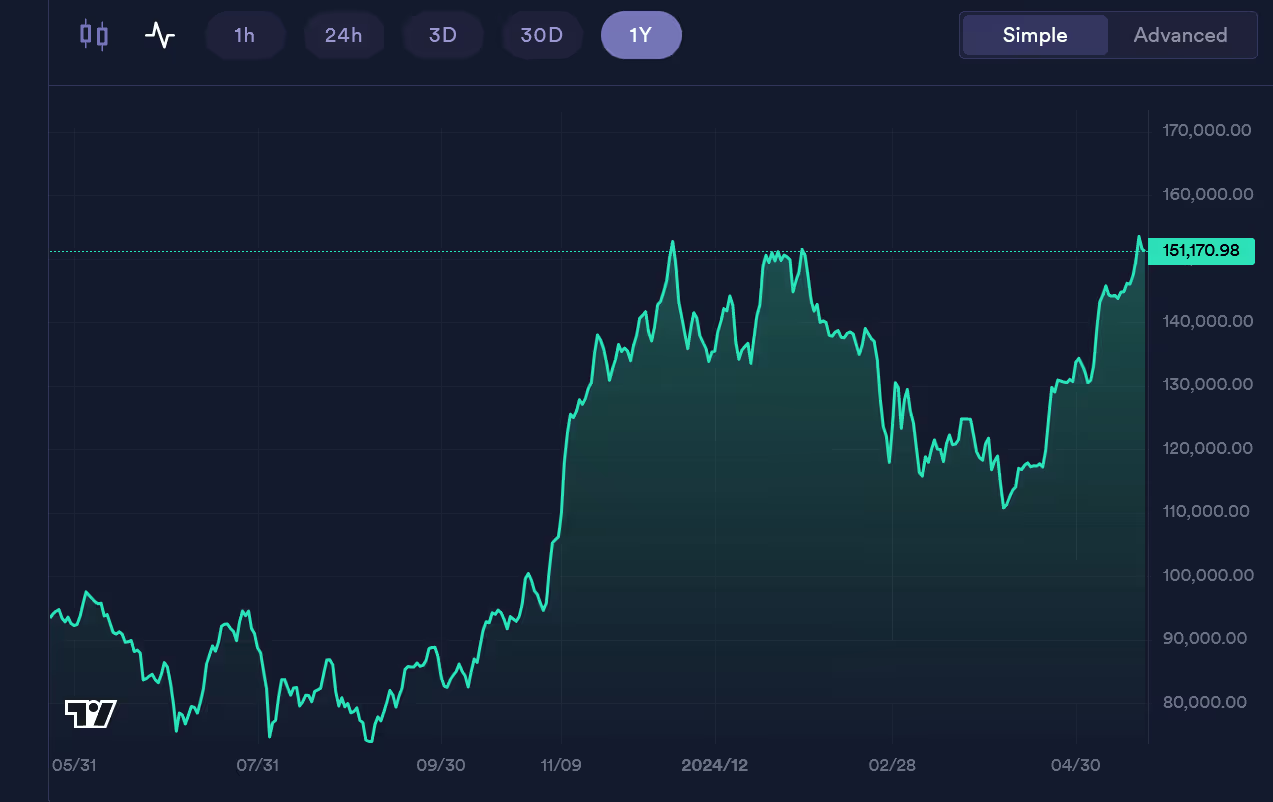

Newton created a practical Cryptocurrency shopping guide for Canadians who have been asking: where can they spend their Bitcoin (BTC)?
Fifteen years ago, an early Bitcoiner named Laszlo Hanyecz had tens of thousands of Bitcoins that he had mined and was looking for a way to actually use them. He also happened to be craving pizza. He offered 10,000 BTC in exchange for two large pizzas, marking the first known real-world purchase using crypto. Hanyecz's pizza is celebrated online every May, marking a notable moment in the timeline of digital asset payments.

In 2025, at today’s prices, those two pizzas would be worth approximately CAD$ 1.4 billion.
Crypto is becoming more and more user friendly. It’s like the internet, where you don’t have to understand the inner workings of the technology to use it. Some popular stores and luxury retailers are starting to accept digital payments alongside traditional forms. What began as a disruptive idea has gradually integrated its use-cases into our culture. It’s easy to see why. When a new innovation offers a range of potential benefits and cost savings it tends to draw attention.
You can of course still spend satoshis on pizza, which may be good or bad news. It’s difficult to picture someone handing over almost 1.5 billion for two pizzas! The BTC chart from the past year highlights the fluctuations typical of cryptocurrency markets.

Canadian’s can still use it and other cryptocurrency to buy goods and services, even though it is not legal tender. Digital assets are not the same as fiat currency. Users should remember that crypto assets such as Bitcoin have unique features when compared against the Canadian dollar.
Aside from the volatility, one major difference is decentralization, and that, generally, crypto is not backed by a central bank or country. To some, the 21 million capped supply and immutability create a value that has often been compared to digital gold. That comparison is becoming outdated and perhaps confusing to make when there are literally digital gold-backed tokens now living on-chain. Most countries, policy makers, and coiners classify BTC as a commodity. Canadian regulators were very proactive, perhaps that is why we are home to the world's first BTC exchange-traded fund (ETF).
Yes, in 2025, the question has become: what can’t you buy with BTC? Check out the BTC Map for locations that directly accept BTC. If you can’t find what you are looking for, there are many different cards that enable crypto spending. Users should also be aware that Bitcoin transactions may have tax implications in Canada.
Indeed, it’s possible to purchase a Lamborghini with crypto. There are various providers in Canada that allow you to negotiate BTC to buy luxury cars from dealerships in the nation by acting as an intermediary. BTC holders send their coins, and the intermediary they select sends cash to the dealership. You can also negotiate used car sales through peer-to-peer transactions. It is important for users to do their own research before sending cryptocurrency to these services. The phrase “not your keys, not your coins” is common in the industry. Digital assets are not insured by the Canada Deposit Insurance Corporation (CDIC).

Yes, there is no law preventing the purchase or sale of property. In 2018, a man in Mississauga made headline news for listing his condo for 35 BTC. At that time, the home was valued at CAD$ 450,000. Today, those 35 Bitcoins are worth approximately CAD$ 5,208,182.00.
The first Canadian BTC ATM appeared in Vancouver in 2013. A second location in Toronto’s downtown core opened in 2014, and back then, finding a crypto machine was like spotting a four-leaf clover. Now, you see these orange branded ATMs, also known as Bitcoin Teller Machines (BTMs), everywhere. They are a way to turn your BTC into fiat currency or, in some cases, vice versa.
If you have never tried one and are wondering where you have to go for a bank card, it's easier than you think. Typically, you connect your wallet using a QR code and provide your phone number to access the service. The machines have received some criticism for the large range of fees charged between different providers,which reportedly fall between 7% and 20%.

No, these big box retailers are not yet accepting BTC or other digital assets directly. However, you can use your crypto at many locations by pre-purchasing gift cards or crypto friendly credit cards through various services.
Bitcoin continues to evolve, and so do the ways Canadians can use it. Whether you're exploring regulated trading platforms, crypto-enabled cards, or simply want to stay updated on what BTC is worth in Canadian dollars, staying informed matters. Newton’s Bitcoin-to-CAD converter launches soon and will make it easier to check real-time values in any denomination before you spend. In the meantime, visit the Newton blog for updates and insights.